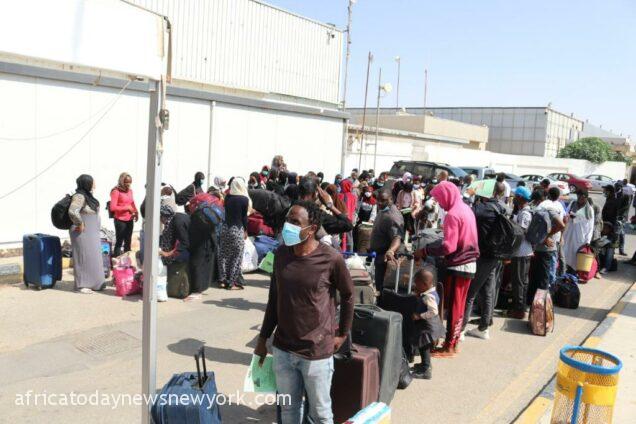It has been revealed that no fewer than 542 Nigerians who had been stranded in the United Arab Emirates (UAE) have finally been evacuated after documentations have been completed.
The returnees had also been received on Sunday by the National Emergency Management Agency (NEMA) and they arrived at the Nnamdi Azikiwe International Airport in Abuja via a Max Air chartered flight at 4:29 a.m.
Read Also: 140 Stranded Nigerians Repatriated From Niger Republic
The citizens had also comprised 79 males, 460 females and three infants, according to a statement which had been released by NEMA spokesperson, Manzo Ezekiel.
They were screened by health officials, profiled by various relevant agencies and cleared by the Nigerian Immigration Service (NIS).
Ezekiel disclosed that NEMA gave each of them a token to aid their transportation to their destinations.
The Director-General, Mustapha Ahmed, advised them to learn from their experiences and contribute to national development.
In another related report, the National Emergency Management Agency (NEMA) has on Saturday announced that it has received another batch of 140 Nigerians who have been stranded from the Agadas, Niger Republic.
Dr Nuradeen Abdullahi who is the NEMA Coordinator, Kano Territorial Office had also confirmed this while receiving the returnees in Kano.
According to him, the returnees were brought back to Kano at about 9.38 p.m in three luxury buses under the care of the International Organisation for Migration (IOM) from Agadas. Abdullahi had also noted that the returnees were brought back through a voluntary repatriation programme for the distressed who had left the country to seek greener pastures in various European countries and could not afford to return when their journey became frustrated.
The returnees included 100 male adults, 30 female adults and 10 children (six female and four male), he said.
“The returnees are from different parts of the country, some from Kano, Kaduna, Katsina, Jos, Lagos and Cross River, among other states.”
The coordinator further explained that the returnees would be trained for four days to be self-reliant and be given a grant to start off businesses.
The returnees were given clothes, food, toiletries, blankets, mosquito nets, pampers and sanitary pad each
He enjoined the returnees to be ambassadors towards advocacy and sensitisation against irregular migration

